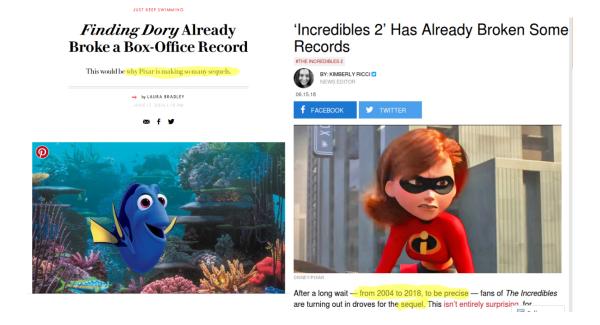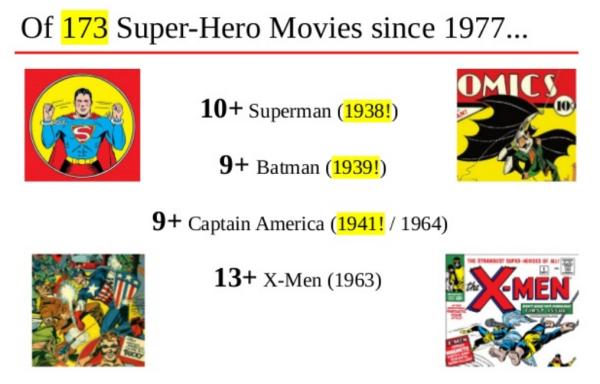Some movie broke some record. Thanks, copyright. Or not?
A movie just broke exactly the same record of many other movies before it, and for exactly the same reason: copyright abuse.
One week ago, a new story with the same characters of a 2004 movie “Broke Some Box-Office Records”. Two years ago, a new story with the same characters of a 2003 movie “Broke Some Box-Office Records”:

<u><em><strong>CAPTION:</strong>
<a href="/img/some-movie-broke-some-record.png" target="_blank">Ah, creativity! (click for bigger version)</a>
</em></u>
and we could go on, and on, and on. As you can see in this slide from a talk of mine:

<u><em><strong>CAPTION:</strong>
<a href="http://mfioretti.com/2017/05/rome-creativity-vs-copyright-and-the-digital-world/" target="_blank">Ah, creativity! (click for slides)</a>
</em></u>
Of 173 Super-Hero movies made since 1977, some tens are sequels, reboots, spinoffs, whatever, of characters and “fictional universes” created (many) decades before. All hail creativity and originality.
Sequels are new works, which may even be better than the originals. Their actual creators, and yes, even the actual financial backers of those creators do deserve a reward. No question about that, and no problem from me if they all become billionaires.
Fact is, today copyright lasts 70+ years after the death of the author. That is, for all practical purposes, forever. Surely much longer than whoever directly contributed in any way may need to be rewarded.
The pictures and links above are just one more proof that a copyright as long as today does not “protect” or “reward” creators for work that THEY have done. Today’s copyright unfairly benefits “multinationals looting their own basements” much more than anybody else. The only purpose of such a long and wide-ranging copyright is to prevent any other, totally independent creator of future derived works, to express their creativity with their own work, and rightly benefit from it.
Who writes this, why, and how to help
I am Marco Fioretti, tech writer and aspiring polymath doing human-digital research and popularization.
I do it because YOUR civil rights and the quality of YOUR life depend every year more on how software is used AROUND you.
To this end, I have already shared more than a million words on this blog, without any paywall or user tracking, and am sharing the next million through a newsletter, also without any paywall.
The more direct support I get, the more I can continue to inform for free parents, teachers, decision makers, and everybody else who should know more stuff like this. You can support me with paid subscriptions to my newsletter, donations via PayPal (mfioretti@nexaima.net) or LiberaPay, or in any of the other ways listed here.THANKS for your support!